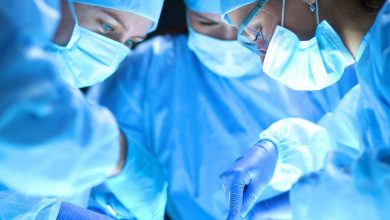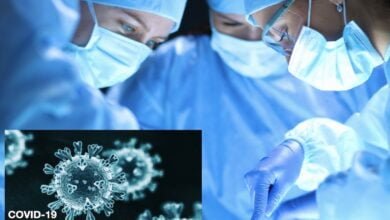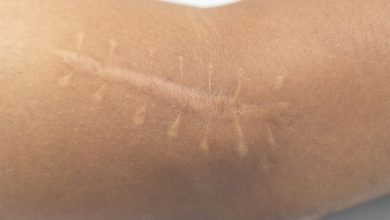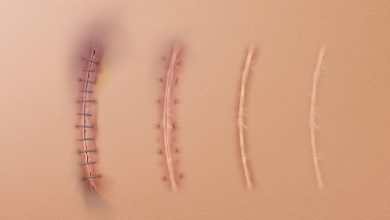What Are The Dos And Don’ts After Plastic Surgery?
The postoperative period is equally important as the preoperative period. First of all, we should act very consciously to avoid possible complications related to the general medical condition, and to detect and treat them in a timely manner, if any. At this stage, it is of vital importance to follow your physician’s advices seriously, and to stay in touch with him/her.
- It is often observed that complications develop after some patients do not pay enough attention to the physician’s postoperative recommendations, and push the limits due to various reasons. In the postoperative period, the patient should strictly follow the advice of the physician, even if he/she feels so good and feels no pain.
- After being discharged from the hospital, patients must adhere strictly to the precautions against the possibility of Coronavirus (COVID-19) disease transmission. To reduce the risk of transmission, you should prefer traveling by a private vehicle rather than public transportation to reach the place where you will stay after surgery.
- You and the person accompanying you should avoid social contact and should not admit visitors for a period of at least 7 days after surgery.
- You should be aware of the signs of coronavirus disease and potential surgical complications, and should inform your physician immediately once you notice anything abnormal.
- You may experience mild weakness, fever, pain, and swelling after the operation. Stay calm and don’t panic.
FIRST OF ALL, if you experience;
- Fever of greater than 38.5 C
- Shortness of breath
- Cough
- Severe pain in the operating area
- Widespread muscle aches
- A large amount of fresh light red blood leaking from the surgical site
- Development of excessive swelling and redness in the surgical site.
- Extreme weakness
- Mental fog and excessive sleepiness
Or if you feel something does not go well, you should inform the physician who has performed the surgery at any time of the day. If you cannot reach your physician for any reason, go to the emergency department of the hospital where the surgery was performed, or the emergency department of the nearest hospital.
What Are The Dos And Don’ts After Plastic Surgery?
Companion:
After your discharge from the hospital, it is of great importance that you have a companion who can look after you 24 hours a day and support you both physically and mentally. The first postoperative week, in particular, is a critical period in terms of the complication risk, and you should not attempt to meet your daily needs on your own during this period.
Activities such as excessive movement, sitting and standing up frequently, bending forward, straining, using the arms may pave the way for a variety complications such as postoperative bleeding. However, I’d like to emphasize that you should not undergo the surgical period without a companion who can come to your aid and contact your physician in case of emergency.
Position:
In general, the surgical site should be kept above the level of the heart in general. Since this reduces the pressure in the vein, there will be less bleeding, swelling, and bruising.
Breathing exercises:
If the patient is unable to take deep enough breaths for various reasons, such as pain, there may be a blockage in the airways (atelectasis) as well as the risk of developing lung infection due to this condition. Therefore, the patient should take deep breaths 3-5 times per hour, in such a way as to fully inflate the lungs. Adequate fluid intake reduces the risk of bronchial obstruction.
Restriction of movement:
The parts relate to the surgical site should not be used more than adequate. For example, arm movements should be restricted for a certain period of time after surgery. The patient should avoid strenuous activities such as straining on the toilet, lifting heavy objects, doing housework, carrying a child, and driving a car. Active sports should be avoided.
Short walks at home can help improve blood circulation in the legs. While lying in bed awake, the blood circulation in the legs should be supported by moving the ankles and knees every hour.
Diet:
Adequate fluid intake is of critical importance in terms of ensuring that the medications taken during surgery are easily eliminated from the body, lowering the risk of leg clot formation, and ensuring adequate blood circulation in the tissues. Reducing the fluid intake, with intent to feel the need to go to the toilet less often.is one of the most common mistakes.
During this process, the patient should avoid alcohol and certain medications, such as aspirin, which may increase bleeding. In the post-operative period, a balanced diet rich in protein should be eaten rather than strict diets intended for weight loss.
Drug Use:
Drugs prescribed by your physician should be taken exactly as specified, with no arbitrary changes in their dosages. When any unexpected effects related to drug use is observed, the doctor should be informed of the situation.
Drain Maintenance:
If drains were used during your surgery and you were discharged with drains, you should observe and empty them at the appointed time as instructed by your surgeon to measure the amount of fluid coming from them. If the drains do not function properly, the fluids accumulating in the operating area may increase the risk of complications.
Taking photos of drains and measuring the liquid in them with scaled containers is a very practical method. You can make this measurement at the intervals specified by your physician and then inform him or her. If there are drains that vacuum with negative pressure, it should be monitored whether the drain applies the desired negative pressure. If the drain is not vacuuming, some air should be evacuated and then the drain should be reinstalled. The degree of vacuum should be as specified by your physician.
If the degree of redness and amount of fresh blood coming from the drains are higher than expected, or if swelling and pain starts developing in the operation areas, you should immediately inform the surgeon who performed the operation.
These may be signs of unexpected bleeding in the surgical area. In some cases, bleeding and blood accumulation (hematoma) may occur in the surgical area even when there is no excess blood coming from the drain. Therefore, even if there is not much blood coming from the drains, you should inform the physician if there is rapidly developing swelling and unusual pain in the operation area.
Smoking:
Smoking should be stopped because it causes spasm and vascular stenosis, and has an extremely unfavorable effect on tissue healing in plastic surgeries, where blood circulation is of great importance.
Mental changes:
In the first postoperative days, it is very normal to experience a temporary mental depression and feel anxious about the success of the surgery. In most cases, the desired results have yet to be seen in this period, due to factors such as bandages, dressings, edema, and so on.
On the other hand, even if the result is extremely successful after plastic surgeries that lead to a significant change in appearance, It takes time to adapt to and internalize the new appearance.
Pandemic Precautions:
You should take the necessary precautions to minimize the risk of COVID-19 transmission in the postoperative period as in the preoperative period. Since surgeries performed under general anesthesia may temporarily suppress the immune system, you and your companion should follow the social isolation rules for at least one week after the surgery. During this period, visitors should not be admitted, masks should be worn when necessary, and rooms should be ventilated frequently.




